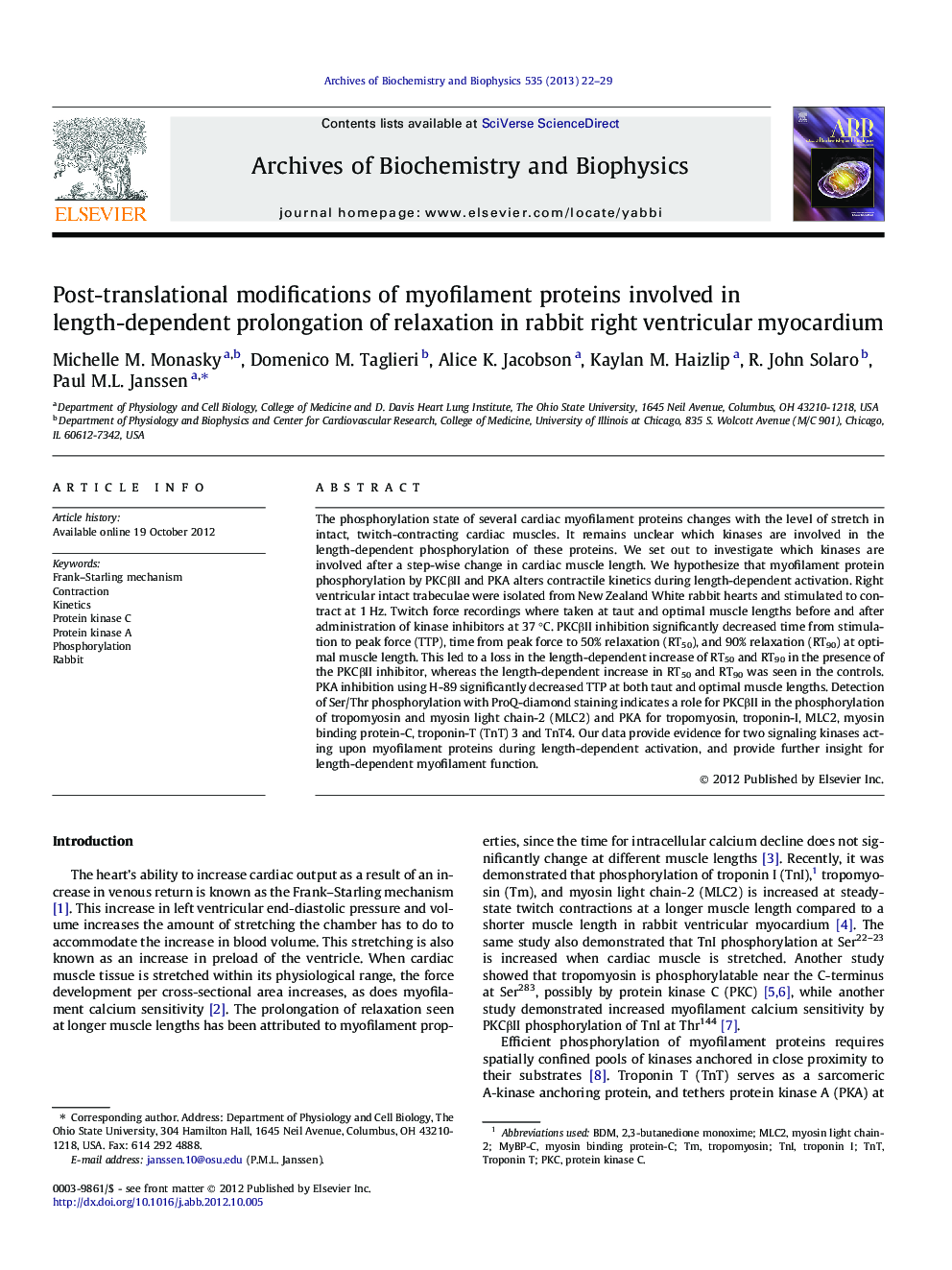| Article ID | Journal | Published Year | Pages | File Type |
|---|---|---|---|---|
| 1925368 | Archives of Biochemistry and Biophysics | 2013 | 8 Pages |
The phosphorylation state of several cardiac myofilament proteins changes with the level of stretch in intact, twitch-contracting cardiac muscles. It remains unclear which kinases are involved in the length-dependent phosphorylation of these proteins. We set out to investigate which kinases are involved after a step-wise change in cardiac muscle length. We hypothesize that myofilament protein phosphorylation by PKCβII and PKA alters contractile kinetics during length-dependent activation. Right ventricular intact trabeculae were isolated from New Zealand White rabbit hearts and stimulated to contract at 1 Hz. Twitch force recordings where taken at taut and optimal muscle lengths before and after administration of kinase inhibitors at 37 °C. PKCβII inhibition significantly decreased time from stimulation to peak force (TTP), time from peak force to 50% relaxation (RT50), and 90% relaxation (RT90) at optimal muscle length. This led to a loss in the length-dependent increase of RT50 and RT90 in the presence of the PKCβII inhibitor, whereas the length-dependent increase in RT50 and RT90 was seen in the controls. PKA inhibition using H-89 significantly decreased TTP at both taut and optimal muscle lengths. Detection of Ser/Thr phosphorylation with ProQ-diamond staining indicates a role for PKCβII in the phosphorylation of tropomyosin and myosin light chain-2 (MLC2) and PKA for tropomyosin, troponin-I, MLC2, myosin binding protein-C, troponin-T (TnT) 3 and TnT4. Our data provide evidence for two signaling kinases acting upon myofilament proteins during length-dependent activation, and provide further insight for length-dependent myofilament function.
